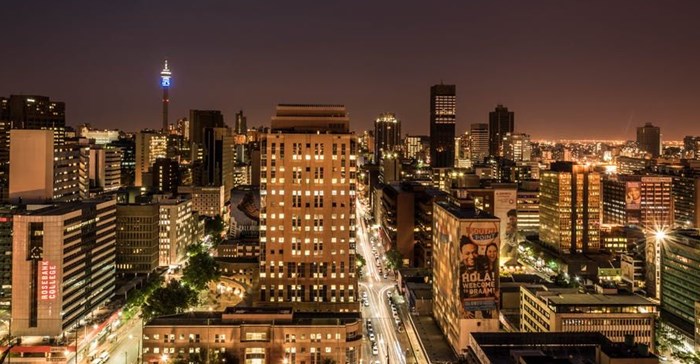
Top stories




ESG & Sustainability#BudgetSpeech2026: SRD grant unchanged, other Sassa social grants see hike
17 hours


More news











ESG & Sustainability
South Africa’s carbon tax should stay: climate scientists explain why














This is because the public is now much more aware of the ongoing crisis at the national electricity utility Eskom and the economic impact this threatens to have on the country.
In addition, it’s becoming clearer that the present South African electricity supply system is no longer sustainable. This is true for two main reasons.
The first is that South Africa’s electricity comes largely from ageing coal plants. The global outlook for coal power generation is negative given coal’s contribution to climate change. Secondly, Eskom is in a precarious financial position even though it holds a monopoly in the power sector.
President Cyril Ramaphosa has set up a presidential task team to explore optimal ways to address these big issues. One of its remits is to come up with a new role for Eskom. Its recommendations are expected to include that the power utility is broken up into smaller units: power generation, electricity transmission on the national grid and distribution to customers.
The task team could also recommend that the distribution of electricity gets deregulated. This could involve Eskom’s stranglehold on distribution being broken and the door being opened to localised microgrids.
But the most contentious issue by far is the role of coal in the country’s future energy mix. The task team is likely to endorse the gradual closure of coal power plants over the next 30 years. This proposal has already been articulated in the government’s latest draft Integrated Resource Plan, the country’s official electricity plan that guides the establishment of new power plants (and closure of old ones).
But winding down the country’s dependency on coals will take huge political will, as well as workable plans to mitigate against job losses.
Tied to the country reducing its dependency on coal is a move towards renewable energy. Energy specialists argue reliable and cost-effective electricity can best be supplied by the massive expansion of renewable energy capacity.
But there are still very different viewpoints on the future of energy in the country. This includes diehard supporters of nuclear power as well as those who want to maintain the coal-dominated status quo.
The African National Congress kicked off the debate in its election manifesto published in mid-January. Instead of playing down this potentially divisive energy issue, the ruling party chose to detail a vision of major investment in renewable energy as the path to a secure power future for the country.
The ANC manifesto noted the fact that the cost of electricity from renewables continues to fall internationally.
The document also stated that there was a need to:
reposition Eskom to play an active role in the renewable energy sector and promote public ownership in renewable energy infrastructure
This is a significant shift from the stance taken by the Zuma administration, which had drifted towards pushing nuclear energy at all costs and stifling renewable energy development.
In contrast, the present ANC policy formulators seem to view renewables as the opportunity for a big leap away from the increasingly dated looking coal-based economy.
Eskom’s role in the renewables sector is just one change being mooted as part of a package of major changes. Another is deregulation of the sector. For example, the Democratic Alliance (DA), South Africa’s official opposition party, supports the privatisation of the electricity sector, and in particular favours municipalities being able to choose how they procure their electricity. This would have to be effected by the expansion of large-scale private sector electricity generation through independent power producers.
The advance of the new renewable energy technologies naturally threatens previously well-established power technologies. Energy from coal in particular will be declining in view of the global imperative to reduce carbon emissions to reduce the threat of global warming.
South Africa is a major coal exporter. Any move against coal would put the coal mining sector in a precarious position. And talk of winding down coals has spawned fears of major job losses. As a result trade unions in the sector are on high alert.
Those involved in designing a new energy future for the country are aware of these fears. As a result, measures are being mooted to soften the impact. These include retraining coal-sector workers and preferential localisation of renewable energy plants in traditional coal mining areas.
Despite this, coal and nuclear lobby groups have in the last two years upped the ante with a campaign targeting the independent power producers based on the high cost of the electricity supplied by the earliest solar and wind farms.
This line of argument ignores the fact that the latest renewable plants produce electricity at a cost lower than would be the case from new coal or nuclear power stations.
Ramaphosa has a tough juggling act to pull off. Does he have the political will, and space within a fractious ruling party, to announce a truly bold new path for Eskom? Can he set down a vision for a modern, renewables-driven energy framework?
Given that it’s an election year he will need to keep his trade union allies on his side. And he’ll have to face down an industry lobby that won’t want to give up coal. But he knows that the country’s economic upturn is paramount now, and that the energy sector transformation goes hand in hand with that. 2019 will see some bold moves into a new energy future.
This article is republished from The Conversation under a Creative Commons license. Read the original article.![]()

The Conversation Africa is an independent source of news and views from the academic and research community. Its aim is to promote better understanding of current affairs and complex issues, and allow for a better quality of public discourse and conversation.
Go to: https://theconversation.com/africa